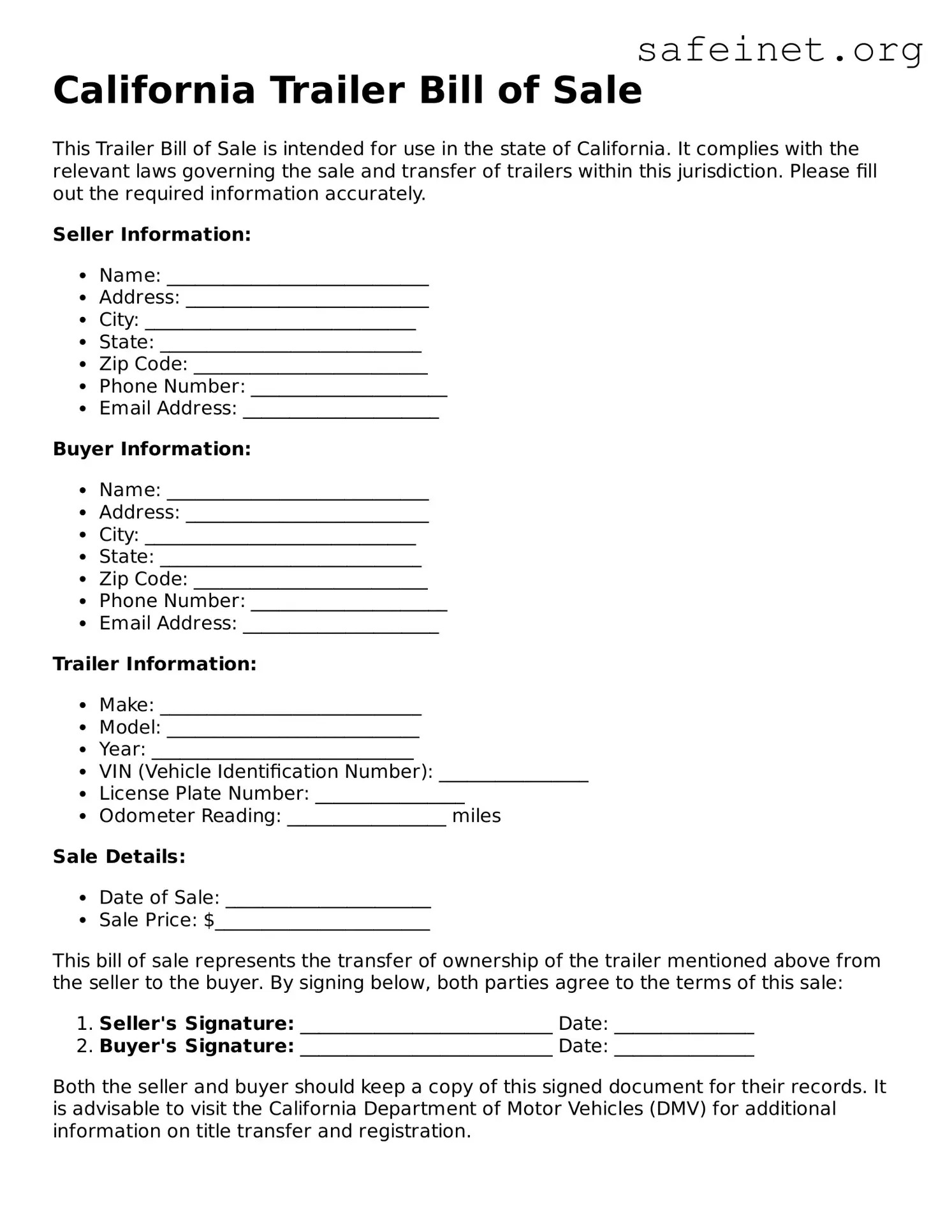What is a Trailer Bill of Sale?
A Trailer Bill of Sale is a document used to transfer ownership of a trailer from one person to another in California. It serves as proof that the buyer has purchased the trailer, and it includes important information about the trailer and the parties involved in the sale.
Why do I need a Trailer Bill of Sale?
This form is crucial for several reasons. First, it protects both the buyer and the seller by documenting the transaction. Second, it can be used to register the trailer with the Department of Motor Vehicles (DMV). Without it, obtaining a title or registering the trailer may be challenging.
What information is included in the Trailer Bill of Sale?
The form typically includes the date of sale, the names and addresses of the buyer and seller, a description of the trailer (make, model, VIN, etc.), the purchase price, and signatures from both parties. All these details help avoid misunderstandings later on.
Is the Trailer Bill of Sale required by law?
While it may not be legally mandated by California state law, it is highly recommended. Having a bill of sale can simplify the registration process at the DMV and protect all parties involved in the transaction.
Do I need to have the Trailer Bill of Sale notarized?
Notarization is not required for the Trailer Bill of Sale in California. However, notarizing the document may provide additional protection, particularly in disputes regarding the sale. It can serve as official proof that both parties signed the document willingly.
Can I use a generic bill of sale form instead of the specific Trailer Bill of Sale?
While a generic bill of sale can sometimes be used, it is advisable to use the specific Trailer Bill of Sale form designed for California trailers. This ensures all necessary details and legal requirements are met, reducing the chance of confusion or errors during the sale.
What should I do after completing the Trailer Bill of Sale?
Once the form is completed and signed, the seller should provide a copy to the buyer. The buyer will need this document to register the trailer at the DMV. Make sure to keep a copy for your records, too, as it can be useful for future reference.
What if there are problems with the sale after I've filled out the Trailer Bill of Sale?
If disputes arise after the sale, the Trailer Bill of Sale acts as a solid reference point. It can clarify the agreement made between the buyer and seller. For major issues, parties may consider consulting a legal professional for advice on how to proceed.
Can I sell a trailer that I do not have the title for?
It's possible to sell a trailer without a title, but it complicates the process. The buyer may face difficulties registering the trailer. It's crucial to disclose this situation to the buyer, and in many cases, obtaining a duplicate title before the sale is wise to ensure a smooth transaction.
